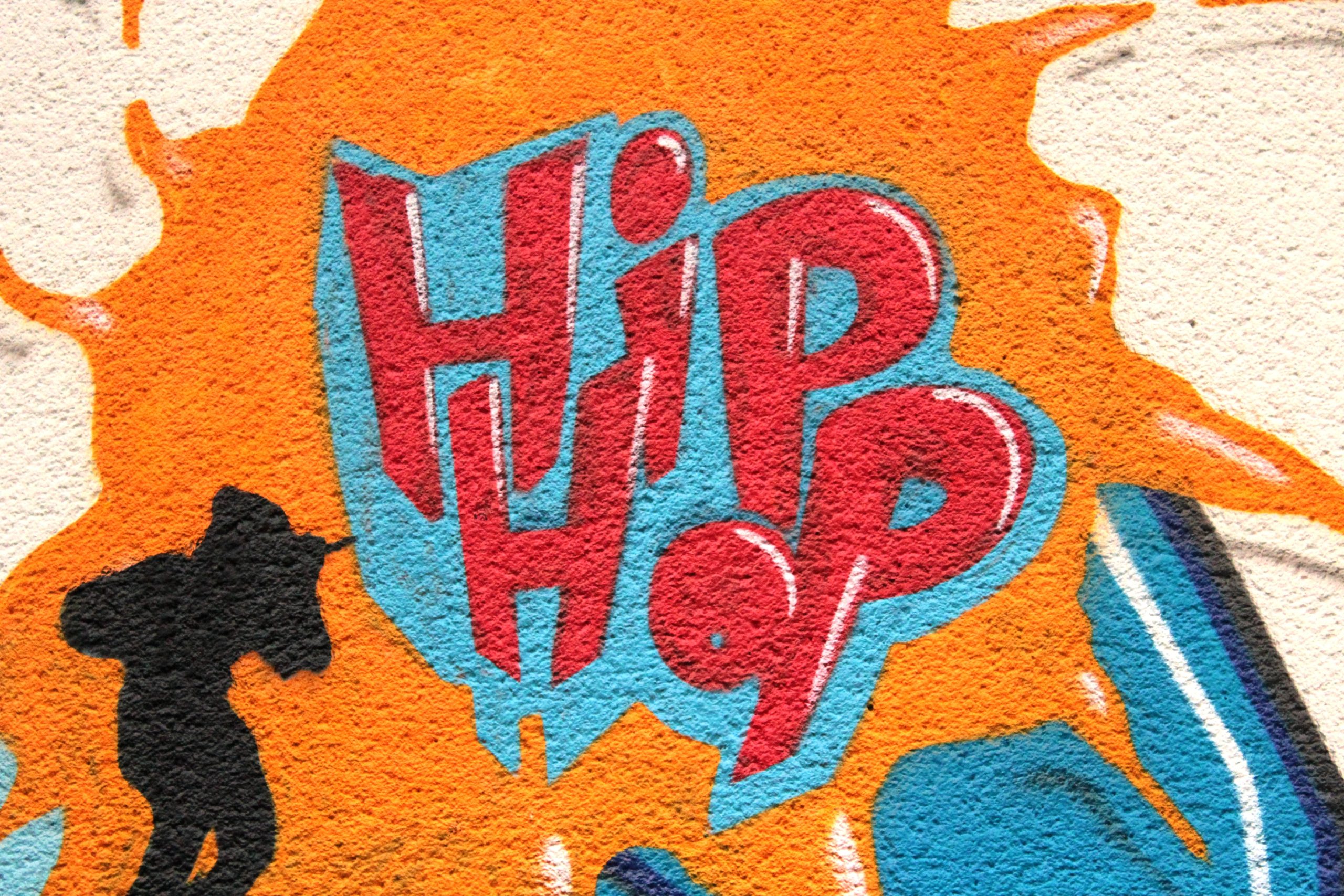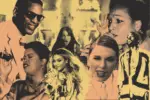Since hip-hop’s formative years, artists and producers have taken portions of other instrumentals to create new music. Known as sampling, it has shaped the landscape of the genre to this day, evident in popular songs like Drake’s “Jimmy Cooks,” Latto’s “Big Energy” and Jack Harlow’s “First Class.” However, because of what often feels like an oversaturation of sampled tracks, many complain that modern hip-hop lacks innovation. But this isn’t anything new. People have been saying this for decades. Whereas some view sampling as a creative art form, others deem it nothing more than unoriginal nostalgia bait. Regardless, the idea that hip-hop today lacks ingenuity simply isn’t true.
When discussing the current state of hip-hop, people tend to think of songs like Nicki Minaj’s “Super Freaky Girl.” It contains a sample from Rick James’ classic song “Super Freak,” which is easily recognizable to listeners familiar with the 1981 hit. Nicki’s raunchy track has a trap beat instrumental with a booming bass and loops the original song’s melody. Other than that, “Super Freaky Girl” doesn’t do much to distinguish itself from “Super Freak,” as it reuses the same key, speed and pitch.
Compare this to Jack Harlow’s summer anthem “First Class,” which flips vocals from Fergie’s song “Glamorous” yet makes noticeable changes. The sample serves as his song’s chorus in which the key is altered, slowed a bit, pitched down and chopped up. Though it’s simple, more is done to distinguish Jack’s song from the original. “Super Freaky Girl” and “First Class” are just two songs that demonstrate the versatility of sampling. If you’ve got clearance and money to spare, you can borrow from any piece of media that has audio. The creative potential of sampling is limitless.
Bruno Mars’s “24K Magic” is sampled in Kendrick Lamar’s song “Loyalty” but it’s barely recognizable. It’s been distorted through reversing, chopping and pitch adjustments, creating something entirely new. In another example, Pop Smoke’s “Scenario” reworks Davy Jones’ theme from the “Pirates of the Caribbean” soundtrack, rather than using a more traditional song. It’s not something one would expect and gives the song a unique sound with a haunting, eerie vibe. However, samples go beyond recorded music and soundtracks as well, such as in Lil Uzi Vert’s song “You Better Move.” Borrowing sound effects from the 3D Pinball Space Cadet, this ingenious instrumental would be familiar to anyone who’s played the game as a child.
When it comes to the art of sampling, anything with sound is within the realm of possibility. Producers have used passing trains, car chimes, video games, singer’s vocals, film dialogue, speeches, viral videos and much more to create fresh, original instrumentals. So why do people continue to say sampling is unoriginal despite these examples of innovative beat production?
It depends on who you ask. Some people are anchored in the belief that sampling is stealing despite the copyright claims and legal landmines in place to prevent it. Also, critics typically cite songs that reimagine classic tunes when they want to debate the originality of sampling; many people feel that classics should remain untouched. When Kanye West approached legendary singer Chaka Khan to sample her song “Through the Fire,” she was reluctant but was interested in what the Chicago rapper would do. However, when she heard his 2003 breakout single, “Through the Wire,” she hated it. Khan has never shied away from voicing her disdain for Kanye’s sampled track, expressing how insulted she felt in several interviews:
“I was upset about sounding like a chipmunk … [Kanye] didn’t mention he was going to speed [my vocals] up three times its normal speed. … Had he, I would’ve had something to say. But since I didn’t think of that, believe me, I think of it now.”
It’s easy to brush off her comments as bitter since she’s seemingly held a grudge against the rapper for nearly two decades. But Chaka Khan’s comments go to show how relatively new sampling was to members of her generation. Her opinion on Kanye’s song isn’t wrong either, as it’s hers to hold, especially when her music is concerned. She’s also not the first to express this sentiment, as countless other music artists have barred rappers and producers from sampling their melodies. Her opinion is shared by many who want to keep their classic songs just as they are. But in other instances, the debate to keep classics intact doesn’t hold up.
Earlier last month, New York rapper Fivio Foreign shared a snippet of a new song online. Recreating Mase’s 1997 hit “What You Want,” his preview received polarizing responses; though his fans begged him to drop the unreleased track, others weren’t too happy with the remake. “Nah..that’s a classic. Leave it be” one user commented on Instagram. “These rappers can’t come up with one original idea,” another user wrote. The irony of these comments lies in the fact that Mase’s song itself is a sampled track, flipping “Right on for the Darkness” by Curtis Mayfield. The idea that hip-hop nowadays is unoriginal doesn’t hold much weight when considering that plenty of old-school rap songs sample older tracks too.
In defense of Mase fans who declared certain songs were off limits, Fivio’s track is essentially “What You Want” recycled, and this is how some people view all sampled tracks. However, even with songs that are samples of samples, it’s possible to distinguish them from each other. Kanye’s song “Stronger” reconstructs Daft Punk’s “Harder, Better, Faster, Stronger,” a tune that was adapted from Edwin Birdsong’s 1979 track “Cola Bottle Baby.” Though there are similarities, each song has a distinct sound and it’s interesting to hear both Kanye and Daft Punk’s creative approaches. The artistry that goes into these instrumentals is amazing, which is something many people don’t consider.
There is no right or wrong way to sample since there’s no correct way to be creative. Even if one thinks an instrumental or melody is simple, it takes some level of effort to create a cohesive piece of work, especially when there are multiple samples involved. Without talent, meshing a variety of instrumentals can easily result in a tune that sounds like an awkward, jumbled mess. Regardless, hip-hop is more innovative and diverse than it’s ever been. Even if you aren’t convinced of its originality, sampling has led new audiences to discover timeless tunes or obscure songs and musicians, which is a beautiful thing. And as more music continues to be released, sampling will likely remain a staple of the genre for decades to come.

















No it hasn’t eroded Hip-Hop. But it has made mainstream commercial beat makers, lazy. Why? Sampling is BEAUTIFUL when done right, see illmatic or any Tribe album for perfect examples of why sampling is incredible. But these modern “artists” are literally sampling classic HIPHOP songs! Thats the problem. We go out and DIG for samples noones heard of, when im in France im digging for sounds Americans never heard of. These new guys running things literally just take hit MODERN hiphop and rnb songs and then loop them, Thats the problem. Sampling isnt the issue, its the problem being allowed and celebrated for just reusing already made hiphop hits.